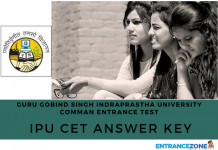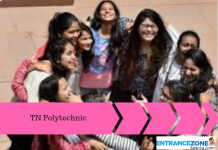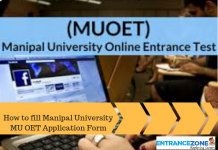Problem-based learning coupled with peer-to-peer brainstorming helps in collaborative teamwork, which is one of the key requisites in the software industry, writes- Apoorva Mishra.
Computer Science engineering in the 21st century has emerged as one of the fastest evolving fields. Most of the industry buzzwords like Machine Learning, Deep Learning, Data Science, Artificial Intelligence, Internet of Things, Big Data, Cloud Computing, Robotics, Blockchain, etc find their roots in Computer Science Engineering.
Ongoing Application Forms - 2020
According to a recent report by the National Association of Software and Services Companies (NASSCOM), India’s IT sector may grow by 9% in the Fiscal Year 2019-20. According to another report titled ‘Technology Jobs & the Future of Work’ by McKinsey, digital technologies could contribute $550 billion to $ 1 trillion of economic impact per year in India by the year 2025. There is an immense opportunity for the upcoming Computer Science engineering graduates in terms of high paying jobs in industry and research, and in being an entrepreneur. But there are certain challenges too. For being a successful entrepreneur in this field, apart from having good technical skills, one needs to have an innovative mindset to deal with real-time problems.
It is through problem-based learning (PBL), a teaching pedagogy in which the students are exposed to real-world problems, students are given a chance to explore the different possible solutions to the problem in an innovative way. This process not only improves creativity and problem-solving skills of the students but also gives them a clear understanding of the concept. Students also get an exposure to deal with certain constraints involved in real-time problems.
Subscribe to Get Updated Information about Innovative Learning Systems to Prepare Future E-software Engineers
The problem-based learning technique provides most of the control of the learning process to the learner, as opposed to the traditional approach where a teacher conveys knowledge to the students and then tells them how to solve problems.
Peer-to-peer brainstorming is another student-centric innovative teaching pedagogy that focusses on enabling students to propose creative solutions to a problem by interacting among themselves and sharing their ideas with each other. Problem-based learning coupled with peer-to-peer brainstorming provides a good opportunity for the students to work collaboratively in a team, which is one of the essential qualities for working in the software industry.
In the past two decades, with the penetration of the internet in India, information has become easily accessible to everyone at an affordable cost. Consequently, the traditional notion of a teacher as only a ‘knowledge provider’ has drastically changed. Hence, a faculty also needs to adopt new teaching strategies which not only focusses on providing knowledge to the students but also involves telling the utility of that in real-life applications and in fulfilling the needs of the society. It is essential for the institutes offering degrees in Computer Science engineering to embrace the latest technologies and keep evolving their syllabus in synchronisation with the rapidly-evolving industrial demands.
The Computer Science Engineering department at Bennett University (BU) offers a wide range of electives (more than 50) spanning across all the recent sub-fields of Computer Science to enable the student to select a subject of his/her choice. The department facilitates creative thinking, technology-enabled interactive learning, besides focussing on soft skills and nurturing entrepreneurial mindset among students through the Centre for Innovation and Entrepreneurship. The department’s ‘Honours’ course offers meritorious students the opportunity to study specialised advanced topics related to Computer Science engineering and earn extra credits. For the purpose of interdisciplinary projects and research, BU students can choose subjects from different streams through ‘open electives’ and ‘minors’.
(The author is assistant professor, School of Engineering and Applied Sciences, Bennett University)
Bennett University Youth and Truth Campaign and Pre-Event Bustle








